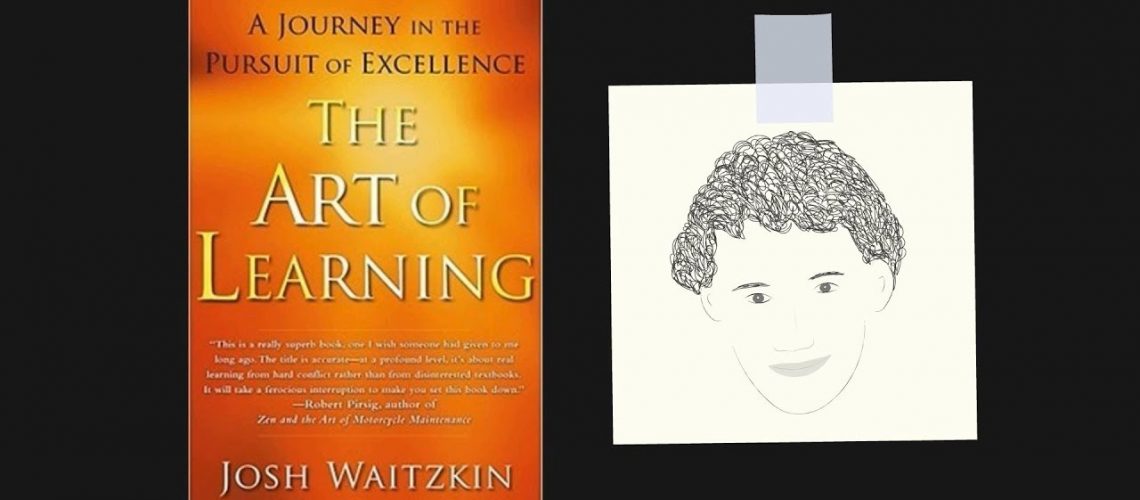Three ways to rise to the top in any learning discipline.
The Art of Learning explains in clear detail how a well-thought-out, principled approach to learning is what separates success from failure. Josh Waitzkin believes that achievement is a function of a lifestyle that fuels a creative, resilient growth process.
Rather than focusing on climactic wins, Waitzkin reveals the inner workings of his everyday method, from systematically triggering intuitive breakthroughs, to honing techniques into states of remarkable potency, to mastering the art of performance psychology.
Animated Video by Productivity Game
Key Takeaways
Universal Learning Principles
1. Feel the Fundamentals
To get a feel for the fundamentals of any skill, focus on one core component and practice simple variations. Don’t stop until that component feels natural or the movement you’re practicing feels effortless. Only then start laying on more complexity.
- In the book josh says a figure skater should begin with the fundamentals of gliding along the ice, turning and skating backwards with deepening relaxation.
- Then step by step, more and more complicated maneuvers can be absorbed while she maintains the sense of ease that was initially experienced within the simplest skill set.
Think of feeling the fundamentals like building a brick wall. The wall represents the skill you’re trying to develop.
- The bottom layer of bricks represent the fundamental components of a skill.
- The mortar between the bricks is the intuitive feel that you have for each component.
- If you just stack bricks on top of one another without applying the mortar and without giving it enough time to dry, your wall will have a weak foundation and the bricks that you add on top of your foundation will become shaky and the height of your wall will be severely restricted.
2. Stay True to Your Style
Once you’ve internalized the basics, there’s not one right way to master a skill, but there is a wrong way and that’s not being true to yourself.
To sustain your love of learning, you must stay true to your style.
- To find your style, focus on what initially drew you to the discipline that you’re trying to master.
- What captured your imagination and interest?
- Oftentimes an initial interest is a person you admire. If you’re a writer who gravitates to a certain writers writing, mimic their style for a bit and then expand on it to develop your own voice.
The core idea is to take the discipline you’re learning and turn it into a creative expression of your uniqueness.
"I believe that one of the most critical factors in the transition to becoming a conscious high performer is the degree in which your relationship to your pursuit stays in harmony with your unique disposition."
3. Invest in Loss
The art of learning is about enjoying the process of learning—but it’s also about putting yourself on the line because the losses we experience when we compete provide the greatest insights and push us to get better. Losses generate pain, but that pain will provide the fuel to focus on the technical and psychological errors you’ve made and make corrections.
The returns on putting yourself out there and investing in loss will either come in the form of:
1. Better preparation.
2. A new strategy you can deploy in future competitions.
3. A renewed drive to get better.
"Respond to heartbreak with hard work."


